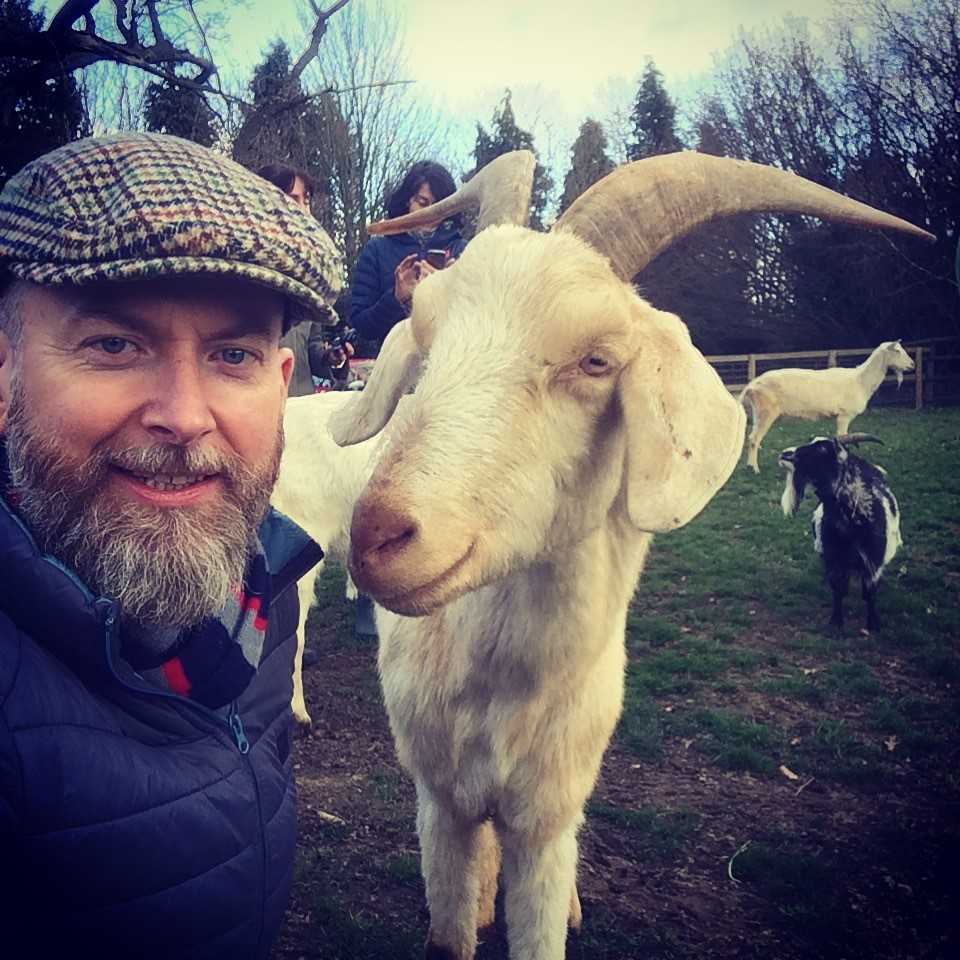Goats prefer smiley, happy faces, new study shows
- Wednesday, August 29, 2018
A new study from Department of Life Sciences, presents the first evidence that goats can differentiate between happy and angry human faces.

A recent study of goats conducted by Dr Alan McElligott from the University of Roehampton and a team of researchers at the Buttercups Sanctuary for Goats has shown for the first time that goats show preferences for happy human faces over angry ones. Facial expressions provide important communicational skills in many species of mammal, particularly primates. While previous studies have shown that animals of the same species can differentiate between one another’s facial expressions, and that ‘companion’ animals, such as dogs and horses, can distinguish human facial expressions, there have been no previous studies into whether animals that were not domesticated to work closely with humans can display a similar interspecies perception of human facial expressions.
To find out, Dr McElligott and his colleagues set up a controlled experiment where goats were placed in an enclosure with two photos of a human. One image showed a happy face, the other an angry one. The researchers tracked which image the goats were most likely to interact with first (either looking at images for a prolonged period or touching images with their snouts) and how long they interacted with each image.
The results clearly showed a preference for the happy face, with goats tending to approach the happy face first and interact with it for longer.
The goats’ preferences changed depending on whether the happy face was positioned to their left or to their right, suggesting that goats process positive images with their left-brain hemispheres. This differentiation has also been observed in other mammals, such as dogs and horses, and may have wider implications for our understanding of how all mammals process emotional information.
Dr McElligott says, “This study shows that, not only can goats distinguish between happy and angry expressions, they also generally prefer happy faces. The ability of animals to perceive human emotional expressions is not limited to those with a long history of domestication as companions, such as dogs and horses, and therefore may be far more widespread than previously believed”.
To read the full article entitled ‘Goats prefer positive human emotional facial expressions’, please click here. The research team includes Dr Christian Nawroth, who worked on the study at Queen Mary University of London and is now based at the Leibniz Institute for Farm Animal Biology, Dr Natalia Albuquerque from the University of Sao Paulo, Carine Savalli from the Leibniz Institute for Farm Animal Biology, and Marie-Sophie Single.
The Department of Life Sciences offers outstanding undergraduate courses in Biological Sciences and Zoology as well as an integrated BSc and MSc in Biological Sciences and Zoology.